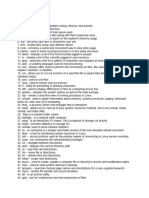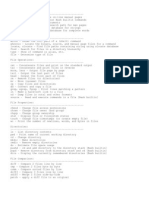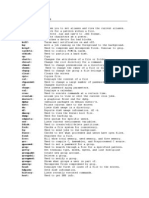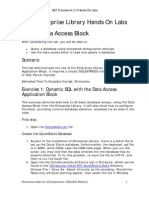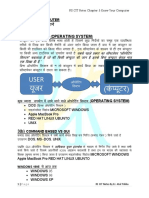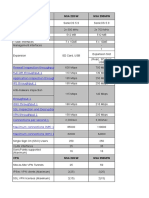0% found this document useful (0 votes)
155 views3 pagesUnix Commands
The document lists 100 essential Unix commands organized by their purpose, including categories such as File and Directory Management, Text Processing, Process Management, Networking, System Management, and Compression and Archiving. Each command is accompanied by a brief description of its function. This comprehensive guide serves as a quick reference for users to efficiently navigate and utilize Unix commands.
Uploaded by
LAKKICopyright
© © All Rights Reserved
We take content rights seriously. If you suspect this is your content, claim it here.
Available Formats
Download as PDF, TXT or read online on Scribd
0% found this document useful (0 votes)
155 views3 pagesUnix Commands
The document lists 100 essential Unix commands organized by their purpose, including categories such as File and Directory Management, Text Processing, Process Management, Networking, System Management, and Compression and Archiving. Each command is accompanied by a brief description of its function. This comprehensive guide serves as a quick reference for users to efficiently navigate and utilize Unix commands.
Uploaded by
LAKKICopyright
© © All Rights Reserved
We take content rights seriously. If you suspect this is your content, claim it here.
Available Formats
Download as PDF, TXT or read online on Scribd
/ 3








